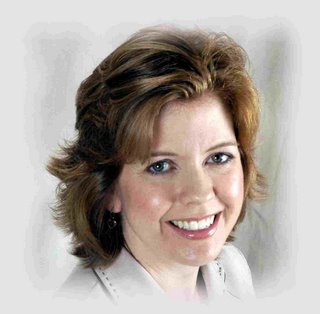Four Reasons to Avoid Using Unsupported Sources in Your Genealogy Research
This blog entry is for the newbie genealogists, so you pros just lean back in that cushy desk chair and roll your eyes at my naivety.
Here’s the short lesson:
Unsupported Information (online databases, word of mouth stories, written family histories) = Bad
Supported Information (double-checking facts, documented sources) = Good
Here’s the longer lesson:
Let’s say a member of your husband’s family has graciously given you a copy of their family history. You’re all set to plug the information into Family Tree Maker, but wait! You’ve almost committed genealogical sacrilege!
Thou shall not mix supported information with unsupported information.
Why? What’s the big deal?
1. Genealogy is a science. You know, “genea” (race, family) + “logy” (science, theory, study). As you know, you can’t just go around proclaiming the world is flat or your ancestor wrote the Star-Spangled Banner without proof. So, unless you have verified all of the family tree data you gathered, your results would not hold up in a court of genealogists. Or, to be more serious, you may be able to pass it off on your family, but not serious genealogists.
2. If you do use unsupported sources without double-checking their validity, you risk incorporating information into your family tree that is just plain wrong. And if someone comes along after you (remember, part of the reason you’re tracing your roots is for your descendants) and finds out that some of the data is incorrect … well, how can they trust the rest of your research?
3. If you do this naughty unverified thing, you also risk researching the wrong ancestor or family line. I recently read that to properly research a family tree, you need to create a firm foundation. That means you can’t move up from researching one generation to the next one without being absolutely sure you’ve got the right people. Researching the wrong ancestor is just plain embarrassing (if you tell anyone you did such a silly thing) and a waste of your time.
4. Using someone else’s research without their permission or knowledge is considered plagiarism. Before you automatically dismiss this idea, read the following article: http://www.iigs.org/newsletter/9904news/ethics.htm.en. Using someone else’s research without giving them proper credit is the same as if you copied and article off the Web and claimed you wrote it.
This doesn’t mean you can’t use online databases or Uncle Bill’s self-published “Book of McGradys,” but you should use these sources as a starting point, not the final answer. If you want me to find out more information about what a “supported source” is, let me know. Remember, I’m still learning, too.
I’ve got to admit, this experience has really opened my eyes. I’m glad I ran into this issue and resolved it before I dug into researching either side of my family or my husband’s family. Who knows what kind of mistakes I would have made?
~Mary Kaye


